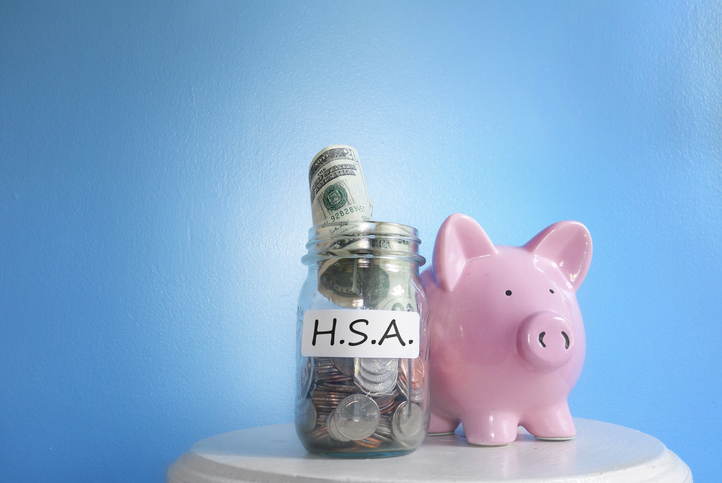Health savings accounts (HSAs), flexible spending accounts (FSAs) and health reimbursement arrangements (HRAs) offer tax benefits. But each has its own rules about who can contribute, how funds are used, who owns the account and whether unused money can carry over to the next year. Some accounts are only offered through employers, while others can be opened individually. Choosing the right one depends on your income, how often you have medical expenses and whether those costs are easy to predict.
A financial advisor can help you evaluate these accounts, assess the tax benefits and build a strategy that aligns with your broader financial goals.
Comparing HSA vs. FSA vs. HRA Accounts
These are all tax-advantaged accounts designed to help you save and pay for qualified medical expenses. They differ in who owns them, how they’re funded and what happens to the money if you don’t use it.
- An HSA (health savings account) is a savings account you own. It’s available only if you have a high-deductible health plan (HDHP). You and your employer can contribute to it, and the funds roll over from year to year with no expiration.
- An FSA (flexible spending account) is usually sponsored by an employer, and you fund it through pre-tax payroll deductions. FSAs are “use-it-or-lose-it” accounts. This means you generally need to spend the money within the plan year. However, some plans offer short grace periods or allow you to carry over a small portion.
- An HRA (Health Reimbursement Arrangement) is fully funded by your employer so you don’t contribute to it yourself. The employer sets the rules for how much you get and what happens to unused funds.
Tax Benefits of HSAs vs. FSAs vs. HRAs

HSAs, FSAs and HRAs each offer ways to lower your taxes, but the type and extent of the benefit depends on the account. Knowing the tax rules can help you choose the account that fits your needs and gives you the most savings.
HSAs provide three layers of tax benefits: You can deduct contributions from your income, the money grows without being taxed and withdrawals for qualified medical costs are also tax-free. For example, if you put $3,000 into an HSA and you’re in the 24% tax bracket, you could reduce your federal taxes by $720—and keep growing that money tax-free for future expenses.
FSAs also use pre-tax dollars, which lowers your taxable income. However, FSA funds don’t grow over time and must usually be spent within the same year, so they work best for predictable medical costs you expect soon.
HRAs are paid for by your employer. You don’t make contributions or get a deduction, but any money your employer provides that you use for eligible health costs is not taxed. Since employers set the rules for how much goes into the HRA and what it covers, the benefit depends on your specific plan.
Contribution Rules and Limits
When comparing HSAs, FSAs and HRAs, you should note who can contribute to each account and which annual contribution limits apply:
- HSA: For 2025, the contribution limit for HSAs is $4,300 for individuals and $8,550 for families1. People age 55 and older can contribute an extra $1,000 as a catch-up contribution. Both you and your employer can contribute, as long as you’re covered by a qualified HDHP.
- FSA: The employee contribution limit for FSAs 2025 is $3,3002. Employers can also contribute, but the combined total generally can’t exceed the IRS limit. FSAs are only available through an employer-sponsored plan.
- HRA: There’s no set IRS limit for HRAs; your employer decides how much to provide. Some HRAs (like Qualified Small Employer HRAs, or QSEHRAs) do have annual caps imposed by the IRS.
Eligible Expenses and Flexibility
All three accounts cover out-of-pocket healthcare costs, but eligible expenses and flexibility differ:
- HSA: You can use funds for qualified medical, dental, and vision expenses for you, your spouse, and dependents. You can also use HSA funds to pay COBRA premiums or long-term care insurance, and even for Medicare premiums once you’re eligible.
- FSA: Similar to an HSA, but FSAs can sometimes also cover dependent care or limited dental and vision if specified by your plan. However, you usually can’t use FSA funds for insurance premiums.
- HRA: Your employer designates eligible expenses for your HRA. Some HRAs reimburse only for premiums, while others cover a broader range of medical costs.
Rollover and Use-It-or-Lose-It Rules
One of the biggest differences between these accounts is what happens if you don’t spend the money by the end of the year:
- HSA: Funds roll over indefinitely and are yours to keep, even if you change jobs or retire.
- FSA: Generally a use-it-or-lose-it account. Some employers allow a short grace period (up to 2.5 months) or let you carry over up to $660 into the next year (per 2025)3 but you risk forfeiting the rest.
- HRA: Rules vary. Some employers allow rollover of unused funds, but others require you to use the money during the plan year. Unlike an HSA, the funds stay with the employer if you leave your job.
For example, if you have $500 left in an HSA at year-end, you keep it. If it’s in an FSA, you may lose it unless your employer offers carryover or grace period options.
Pros and Cons of Each Account
The following table can give you an overview of the pros and cons of each type of account:
| Account Type | Pros | Cons |
| HSA | Triple tax advantage Funds roll over indefinitely Portable if you change jobs | Must have a high-deductible health plan (HDHP)Contribution limits |
| FSA | Lowers taxable income Available without HDHP | Use-it-or-lose-it Lower contribution limits |
| HRA | Employer-funded No employee contribution required | Not portable Employer controls contributions and rules |
Which Account Is Right for You?
Choosing between these different types of accounts depends on your healthcare needs, income, and job situation. If you have a high-deductible plan and want flexibility, an HSA is hard to beat. If you expect predictable expenses and your employer offers generous FSA terms, an FSA can work well. If your employer offers an HRA with robust funding, it may save you money without requiring contributions.
For some, it even makes sense to use more than one, such as an HSA paired with a limited-purpose FSA (for dental and vision), or using an HRA while saving for future expenses in an HSA.
Bottom Line

When comparing HSAs, FSAs and HRAs, each account has its own benefits. HSAs stand out because they offer tax savings on contributions, growth, withdrawals, and the money stays with you year after year. FSAs are helpful for covering regular medical expenses, but the funds usually expire if not used within the year. HRAs are funded by your employer, so you don’t have to contribute, but you have less control over how they’re used. A financial advisor can help you decide which account fits your needs and how to include it in your overall financial plan.
Tax Planning Tips
- A financial advisor can help you create a tax plan to manage your liability for your portfolio. Finding a financial advisor doesn’t have to be hard. SmartAsset’s free tool matches you with vetted financial advisors who serve your area, and you can have a free introductory call with your advisor matches to decide which one you feel is right for you. If you’re ready to find an advisor who can help you achieve your financial goals, get started now.
- If you want to know how much your next tax refund or balance could be, SmartAsset’s tax return calculator can help you get an estimate.
Photo credit: ©iStock.com/zimmytws, ©iStock.com/AndreyPopov, ©iStock.com/TrixiePhoto
Read the full article here









